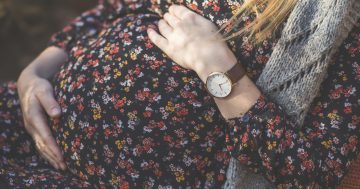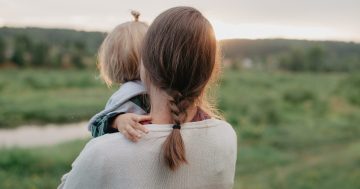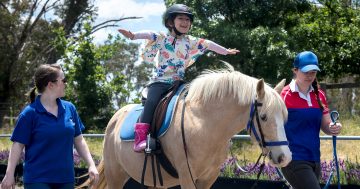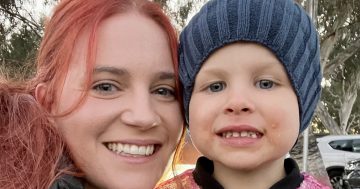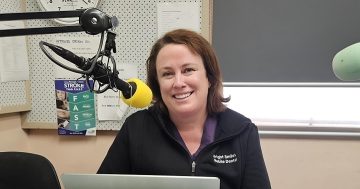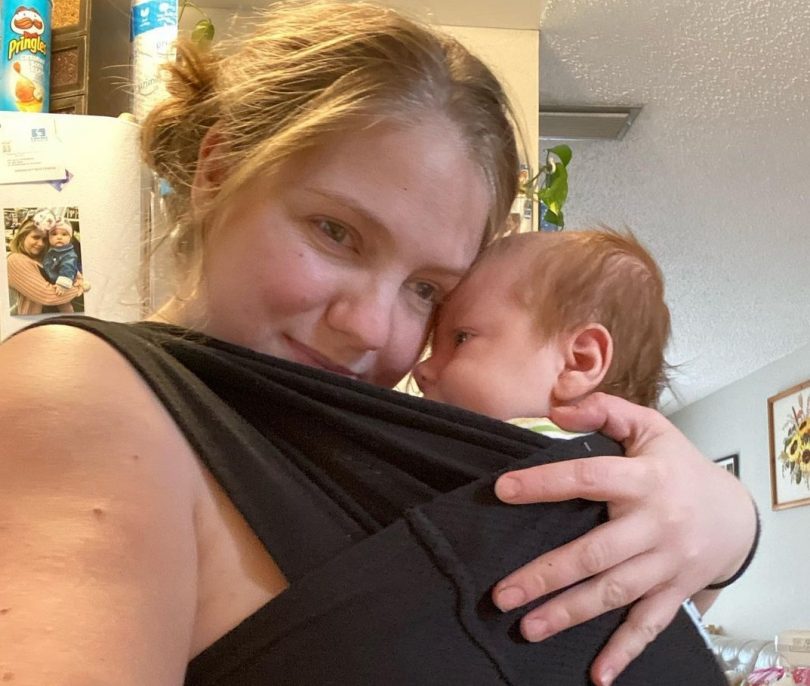
Karinya House and disAbility Maternity Care are standing tall to represent mums such as Samantha, who has vision impairment. Photo: disAbility Maternity Care.
Karinya House and disAbility Maternity Care have teamed up in seeking to change the language and conversation about pregnant women and new mums, and to reduce the stigma that often surrounds mums who have a disability or who are experiencing vulnerabilities, such as homelessness.
Providing information and services to support parents with a disability, disAbility Maternity Care will donate the proceeds from a specially designed t-shirt to Karinya House.
The t-shirt’s slogan, ‘Let’s Change the Conversation’, is aimed at combating negative and stigmatising community attitudes towards mothers who experience disability, that can compound the effects of issues such as anxiety, depression and domestic violence faced by many women.
It also strongly aligns with disAbility Maternity Care’s vision of ‘changing the conversation to support parents with difference’.
Midwife and Karinya House senior health professional Alexandra Ball says every woman who is pregnant or parenting should be surrounded with the support she needs.
Alexandra says the new partnership with disAbility Maternity Care will help the Karinya House care team walk alongside women as they regain their power to represent themselves, and make informed choices about their own lives.
“This is an opportunity to partner with an organisation that has very similar guiding principles and values,” says Alexandra.
“Every woman who’s pregnant or parenting deserves to have a village surrounding them. We are often that village if a woman doesn’t have family or friends beside them.”
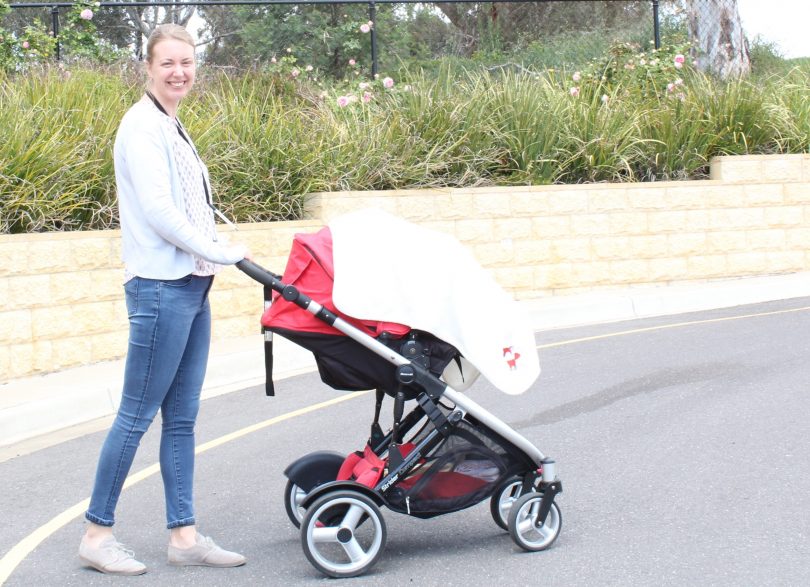
Midwife and senior health professional Alexandra Ball and the Karinya House team provide ongoing care to disadvantaged mothers before, during and after the birth of their baby. Photo: Karinya House.
Alexandra says the new campaign will raise public awareness and challenge the conversation around women in our community who have limited support, or who experience disability.
“By buying a t-shirt, people will be helping women at a time when they’re going through a significant change in their lives, with very little support,” she says.
“At Karinya, we’re their sister, their mother, their family, and we’re there to support women in whatever way they need. This might be sitting with a new mum in the middle of the night as she feeds and settles her little one, or perhaps assisting her to navigate a pathway to safe and affordable housing for herself and her family.”
disAbility Maternity Care CEO Dr Namira Williams says the two organisations share a common goal, with her service founded in 2018 on the premise that people with a disability have the right to consensual sex, relationships and a family, and that parenting is a learned skill for everyone.
“Teaming up with Karinya is the perfect partnership because we’re both very much about supporting vulnerable women and helping them become successful parents,” she says.
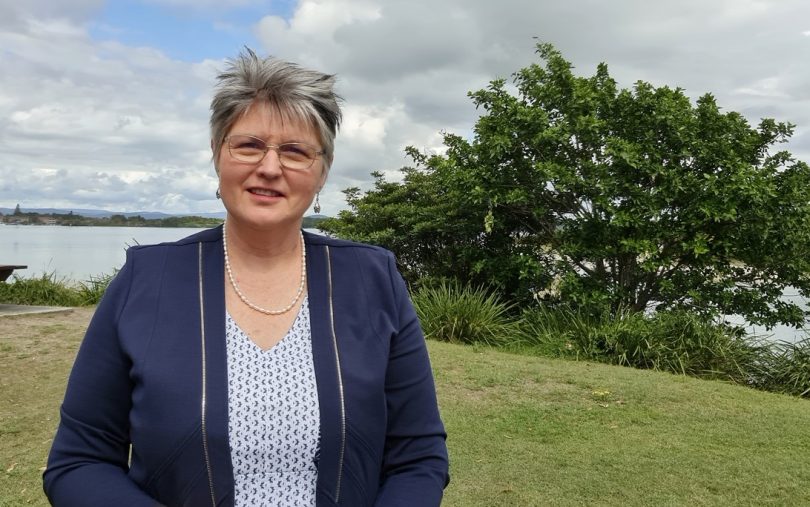
disAbility Maternity Care CEO Dr Namira Williams says around one in 10 new mums have a disability, and many don’t receive the support they need. Photo: disAbility Maternity Care.
Dr Williams says around one in 10 women having a baby will have some type of disability, divergency, vision or hearing impairment, however many are afraid to seek support or don’t know how to access assistance.
She says ensuring adequate and appropriate antenatal and maternity for women with a disability is crucial to ensuring they are well prepared to care for their newborn.
Dr Williams says a lot of women with disabilities have their child removed from their care, bringing trauma and grief for the mother, her partner and their families.
“Having worked as a midwife for nearly 30 years, there’s nothing worse than seeing a baby removed from its mother’s arms,” she says.
“It’s so traumatic for the family and the midwife.”
Dr Williams says parents with a disability and all mums need to be supported and educated from the beginning.
“Through building skills and knowledge that accommodate each woman’s disability, these women can be prepared for the transition to motherhood,” she says.
Dr Williams says both organisations share a common thread, with the Karinya House team helping around 200 women per year and, on average, one to two per cent of those women present with a diagnosed intellectual or physical disability.
“I think Karinya is fantastic and we need more organisations like it that provide long-term support for mums and their babies,” she says.
As a not-for-profit organisation, Karinya House is dependent on funding from both government and non-government partners. Karinya House seeks to collaborate with service partners such as disAbility Maternity Care, and the importance of effective collaboration is crucial.












